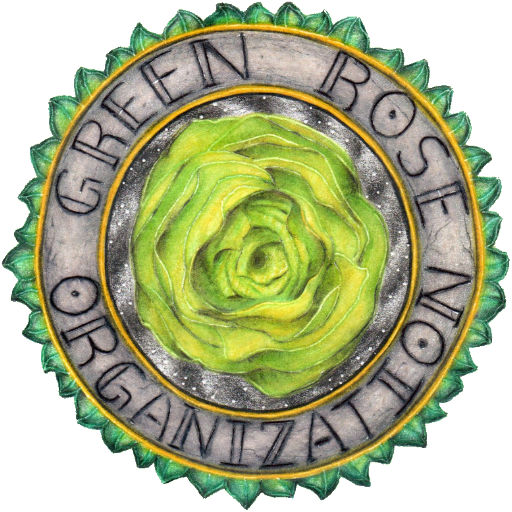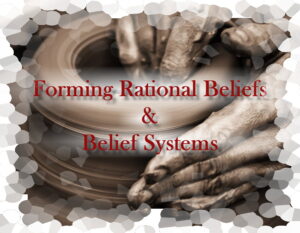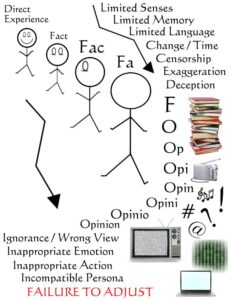THE POWER OF PURPOSE
By Shawn Malzahn
Purposeful living is without a doubt one of the most valuable assets that a man or woman can ever possess in life. Having a sense of purpose gives meaning to all the suffering one has to painstakingly endure throughout the course of their lifespan. It allows one to truly understand why they must push upward and onward when faced with adversity, which in turn, makes the pain experienced while struggling through said adversity much more tolerable. In this lesson, our objectives will be to come to the awareness and understanding of purposes power to influence and motivate our thoughts, emotions, and behaviors, as well as, how having such a sense of purpose affects us physically, and finally, to begin exploring ways in which we ourselves can manage to develop this awesome sense of direction called purpose.
First and foremost, it should be understood that having a sense of purpose is simply the same thing as saying we have a belief. Purpose is really a core belief nestled deep inside our minds acting as a compass giving us direction in life. We all know what happens to the sailor when he forgets to bring his compass, he gets lost at sea, and so too do we become lost in life when we lack a sense of purpose. Just stop and think for a moment. What is the reason that you continue getting up and out of bed each and every morning? Why do you continue to even feed and clothe yourself, and what exactly are you trying to do with this extremely short period of time existing on this planet? A lot of times I find that people cannot readily answer these questions when asked. These people I notice to be generally depressed and unsatisfied with life. They haven’t developed a sense of significance, and because of this, various negative thoughts begin to fill their minds, such as, “I am worthless, I am useless, what’s the point of living, I don’t fit in, or I am lost.” These negative trains of thought will ALWAYS derail into unpleasant emotional consequences, such as, fear, sadness, anger, shame, etc., and once these feeling have begun to develop, there will undoubtably be confusion and anxiety born from the emotionally agitated mind. Once the mind becomes agitated, it is easy for us to begin exhibiting more and more negative behavior as a means to alleviate the pain that comes along with having such an agitated mind, behaviors such as, excessive entertainment seeking, substance abuse to the point of over-intoxication, and preoccupation with thoughts and acts of the sexual nature, because these are the activities that help distract the mind from paying attention to all those negative thoughts and feelings born from a perceived purposeless existence. In other words, if we lack a sense of purpose in life, we will begin to develop a negative or indifferent outlook on life, and once this happens, we begin existing just so we can continue to consume and reproduce like animals. Just think about it. What do people who lack a sense of direction in life do? They simply wander around the world trying to pursue pleasures and avoid pains like a scared animal just trying to survive. However, there is much more to life than simply pursuing pleasures and avoiding pains, for it is sometimes necessary to pursue pain and avoid pleasure in an effort to ADAPT and GROW oneself into a CIVIL and SPIRITUAL human being. This is when we begin to move ourselves out of the direction of selfishness, and into the direction of selflessness. This is when we begin to cultivate loftier ideals apart from that of mere reproduction. Ideals such as, world peace, spiritual liberation, and the implementation of beauty and fine art into our homes and communities.
Now that we understand how having a lack of purpose truly affects us on a mental, emotional, and behavioral level, let us now explore how it can begin affecting us physically in the body as well. It is well known in the scientific community that people without a sense of purpose in life may very well experience higher levels of stress and anxiety. Higher levels of stress and anxiety can lead to chronic stress and the inability to relax oneself. This chronic condition of mental and physical agitation, can (over time) negatively impact inflammation, metabolism, diabetes, and high blood pressure. It can also increase cardiovascular disease. According to Psychology Today, a team of researchers conducted a study that involved over 1,000 adult subjects whose ages ranged from 21 to over 100 years old. The data collected from this study overwhelmingly suggested that a transition occurs over time between young adulthood and old age, when we leave our twenties and enter our thirties, forties, and fifties, where we become more certain about our careers, our significant others, and the overall meaning of our EXTREMELY SHORT lives on this planet. This, in turn, comes with more positive affects on the body, since it is more likely than not, that those who are driven by purpose, will tend to eat better, sleep better, and practice better habits of hygiene. However, the study also concluded that after the age of sixty, things begin to take a change again for the worse. After sixty, people tend to retire from their jobs and lose their identities as individuals. So, as you can see, having a sense of purpose in life isn’t always a permanent thing. It can, and WILL, need to be revitalized over the course of future life experience.
Now that we know and understand the positive and negative ramifications that having (and not having) a sense of purpose entails, let us now try and figure out just how it is that purposes are discovered. Some people are able to intuit their purpose in life without having to do any work at all, it just comes naturally over the course of their life experience, whereas for others, meaning and significance can only come through deliberate exercises and extensive self-reflection. One exercise I like to do, is something I call “hardship hunting”. I truly believe that everything happens for a reason in life, and that even the hardships we experience can be transmuted into something positive and uplifting for the greater good of mankind. Therefore, if we sit down and think about it, or perhaps have a conversation with someone we trust (or even a complete stranger for that matter) we can begin to reframe our hardships by looking for the life lesson that was learned, a lesson that can then be passed down to future generations to come. For example, perhaps someone was the victim of racism, only to turn around and discover their calling as a Civil Servant. Or perhaps someone suffers from a major illness or disease, only to find themselves years later studying medicine in an effort to become a doctor who can then later on in life help others. Another great way to discover purpose in life is to write down the things that you value, the things you are good at, and the things that you are most interested in, or passionate about. These are the clues that will help us solve the mystery of purposeful living, and these are the puzzle pieces that when put together, the bigger picture of life’s meaning becomes more apparent.
In conclusion, we should now have come to the awareness and understanding of purposes power to influence and motivate our thoughts, emotions, and behaviors, as well as, how having such a sense of purpose affects us physically. Lastly, I hope that we are now in a better position to begin REFRAMING OUR HARDSHIPS in a manner that will be conducive to increased levels of HARMONY and GROWTH (not just for ourselves) but for all those we will come to serve in our futures yet to come.




